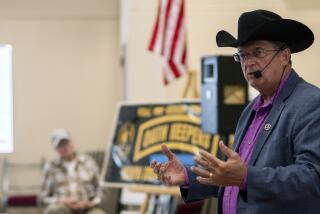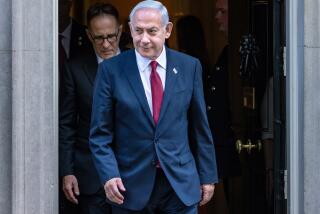Clinton Seeks a Profitable Economic Meeting in South
President Clinton returns to his beloved role of symposium leader today to talk about Southeastern regional economics as he begins a spring travel tour thick with early-season presidential politics.
With a microphone at his elbow and half-glasses typically perched on his nose, Clinton will preside over a White House-arranged meeting of business leaders, politicians, economists and just plain folks that is intended to stir up new thinking about how government can relieve working America’s distress.
Along the way, the daylong gathering may accomplish a few other White House goals: highlighting contrasts between the government-slashing congressional Republicans and the President; generating heavy and largely favorable regional news coverage; and strengthening ties with the Democratic core of union and minority voters in the electoral preseason.
In recent weeks, the White House has drummed away with accusations that congressional Republicans are too eager to sacrifice the helpless. Clinton aides hope to provide a contrast to that today with images of the President in the heartland among ordinary Americans, seeking solutions to their problems.
The conference and four other regional sessions over the spring and summer also offer Clinton the chance to talk up figures that show a falling federal budget deficit, an unemployment rate of 5.4% and a 1994 consumer price index increase of 2.7%. Getting credit now may be important because some analysts forecast that the economy may be weaker before the election.
Some analysts say the South appears very tough for Clinton next year, with polls showing that potential white swing voters are alienated from him. His best opportunity may be in Georgia, which is the largest of the six Southern states that voted for him in 1992.
A panoply of Administration officials will be present, including Labor Secretary Robert B. Reich, Commerce Secretary Ronald H. Brown, Education Secretary Richard W. Riley, Health and Human Services Secretary Donna Shalala, and U.S. Trade Representative Mickey Kantor.
More to Read
Sign up for Essential California
The most important California stories and recommendations in your inbox every morning.
You may occasionally receive promotional content from the Los Angeles Times.











